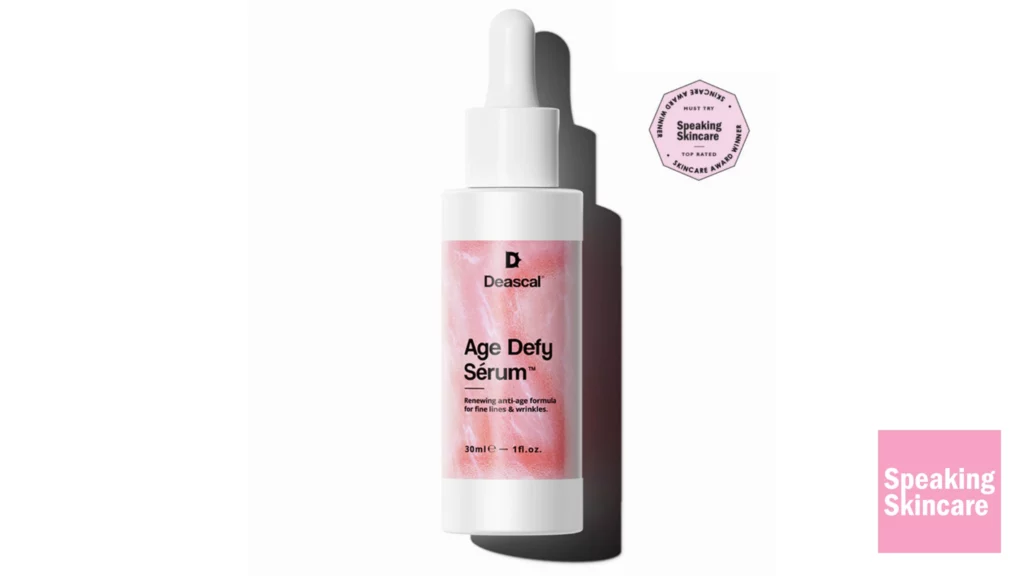Having redness around your eyes can feel sore, uncomfortable, and look unsightly. Many of us have to deal with irritation around the eyes from time to time. It can strike from nowhere and really ruin our day.
Thankfully, treating red skin around the eyes is a simple process. Today, we’ll be covering the causes and symptoms of eye redness. We’ll also be giving you the best tips and treatments to heal your sore red skin.
So without further ado, let’s get into it.
What causes redness around the eyes?
There can be many potential triggers for the skin around your eyes to become red and sore. Depending on the individual, one or multiple causes could be the problem.
Here are some of the most common causes:
- Allergies
- Dryness
- Infections
- Contact dermatitis
- Genetics
- Aging
- Stress
Allergies
If you’re experiencing redness around your eyes, one of the potential causes could be allergies. Allergies can be a real pain, and the skin around your eyes is particularly sensitive. Allergens like pollen, dust, and pet dander can cause your eyes to become red, itchy, and irritated. Other symptoms of allergies include sneezing, runny nose, and watery eyes.
Allergies can strike at any time. Sometimes, you may not realize you have a particular allergy until you experience it. Be sure to keep track of any allergies you have to avoid triggering them.
Dryness
When your skin is dry, it can become itchy, flaky, and irritated, which can lead to redness. To combat dryness, it’s important to keep your skin hydrated. This means moisturizing regularly with a gentle, fragrance-free moisturizer. You can also try using a humidifier to add moisture to the air in your home. It’s also important to avoid harsh soaps or cleansers that can strip your skin of its natural oils. Instead, opt for gentle, non-irritating products.
If you wear makeup, make sure to remove it gently and thoroughly every night before bed. Leaving makeup on can further dry out your skin and exacerbate redness and irritation.
Infections
If you’re experiencing redness around your eyes, it could be a sign of an infection. Eye infections can be caused by bacteria, viruses, or other pathogens.
One common type of eye infection is conjunctivitis, also known as pink eye. This infection can be caused by a virus or bacteria and can cause redness, itching, and discharge from the eyes. Other types of infections that can affect the skin around the eyes include styes, which are painful bumps that form on the eyelid, and cellulitis, which is a bacterial infection that can spread quickly and cause redness and swelling.
Infections can also occur as a result of an injury to the eye or surrounding area. If you’ve recently injured your eye or been in close contact with someone who has an eye infection, you may be at a higher risk of developing an infection yourself.
To prevent infections, make sure to practice good hygiene, such as washing your hands regularly and avoiding touching your eyes or face. If you wear contact lenses, make sure to follow proper cleaning and storage guidelines.
Contact dermatitis
Contact dermatitis can be a leading cause of redness around the eyes. This condition occurs when your skin comes into contact with a substance that irritates or causes an allergic reaction.
Common irritants that can cause contact dermatitis around the eyes include makeup, lotions, and other skincare products. If you’re allergic to certain ingredients in these products, you may experience redness, itching, and swelling around your eyes.
Other potential irritants include chemicals in household cleaning products, hair dye, and even certain types of jewelry. If you’re regularly exposed to these substances, you may be at higher risk of developing contact dermatitis.
To prevent contact dermatitis, it’s important to be mindful of the products you use and to avoid any substances that cause irritation or an allergic reaction. Be sure to always stay clear of troublesome ingredients too. If you suspect that a certain product is causing your symptoms, try switching to a gentler, fragrance-free alternative.
Genetics
Sometimes, the reason for redness around the eyes is simply genetics. Some people are more prone to developing skin conditions, including those that cause redness and inflammation around the eyes.
If your parents or other family members have experienced similar symptoms, there’s a chance that your redness may be related to genetics. Skin conditions like eczema, rosacea and psoriasis are all examples of conditions that can be hereditary.
Aging
As we age, the skin around our eyes can become thinner and more delicate, making it more susceptible to redness and inflammation. This is because the production of collagen and elastin, which help to keep the skin firm and supple, slows down over time. In addition, the natural aging process can lead to a reduction in oil production, which can cause dryness and irritation around the eyes. This can contribute to redness, as well as fine lines and wrinkles.
Learning to how best care for mature skin can reduce a lot of these symptoms. Remember to always treat your aging skin with love and care.
Stress
Believe it or not, stress can actually be a leading cause of redness around the eyes and other skin problems.[1] When we’re under stress, our bodies release cortisol, a hormone that can cause inflammation throughout the body, including around the eyes.
Additionally, stress can lead to poor sleep quality, which can cause dark circles and puffiness around the eyes. This can make the skin appear redder and more irritated than usual.
How to treat redness around the eyes
There are many things you can do to treat and reduce the symptoms of red and sore skin around your eyes. We’ve compiled a handy list of techniques you can do at home.
Keep in mind that what works for you might not work for others. Everyone’s skin is different and reacts in various ways.

Get more sleep
Getting enough sleep is crucial for the health of your skin and can help reduce redness around your eyes. When you don’t get enough sleep, your body produces more cortisol, a stress hormone that can cause inflammation and redness in your skin.
But getting good quality sleep isn’t always easy. If you have trouble falling or staying asleep, try establishing a bedtime routine. This can include activities like reading, taking a warm bath, or doing some light stretching before bed. Creating a calming and relaxing environment in your bedroom can also help promote better sleep.
It’s also important to avoid caffeine and alcohol in the evening, as they can interfere with sleep. Instead, opt for a warm cup of herbal tea or a glass of water to stay hydrated.
You should aim to get 7-8 hours of quality sleep every night. They don’t call it beauty sleep for nothing!
Allergies
Allergies can be a real pain, and they can also cause redness, itching, and irritation around your eyes. If you suspect you have allergies, talk to your doctor about getting tested and finding the right treatment.
One of the most common allergens that can affect the eyes is pollen, especially during allergy season. Other potential allergens include dust and certain foods.
To help reduce your exposure to allergens, try keeping your home clean and dust-free. Use a vacuum with a HEPA filter to remove allergens from your carpets and furniture, and consider using an air purifier to filter the air in your home.
You can also try using allergy eye drops to relieve redness and itching. These drops can help reduce inflammation and can be found over the counter or prescribed by your doctor.
Stay hydrated
Staying hydrated is essential for maintaining healthy skin and reducing redness around your eyes. When you’re dehydrated, your skin can become dry and irritated, which can exacerbate redness and make it more difficult for your skin to heal.
One of the easiest ways to stay hydrated is by drinking plenty of water throughout the day. Aim for at least 8 glasses of water per day, and more if you’re exercising or in a hot environment.
If you struggle to drink enough water, try adding some flavor to it with a slice of lemon or lime. You can also drink herbal tea or eat water-rich foods like cucumbers, watermelon, and tomatoes to help boost your hydration levels.
It’s also important to limit your intake of dehydrating beverages like coffee, soda, and alcohol. While these drinks may be refreshing in the moment, they can actually contribute to dehydration over time.
Use anti-aging products
Using anti-aging products can help restore collagen in your skin, which can reduce redness around your eyes and improve the overall health of your skin.
Collagen is a protein that helps give your skin its structure and elasticity. However, our bodies produce less of it as we age. This can lead to wrinkles, fine lines, and sagging skin. Using anti-aging products that contain ingredients like retinoids, vitamin C, and peptides can help boost collagen production in your skin, improving its texture and appearance.[2]
We recommend a product such as The Age Defy Serum by Deascal. As far as anti-aging serums go, it’s simply one of the best we’ve come across. With consistent use, the redness around your eyes will fade away! Check out our full review and claim an exclusive discount code!

Be gentle
When you rub your eyes, you’re putting pressure on the delicate skin around them, which can cause irritation and inflammation. Over time, this can lead to sore and red skin around the eyes. So stop rubbing them so much, guys!
Also, using harsh ingredients, such as those found in some makeup and skincare products, can also cause itchiness and redness. Ingredients like alcohol, fragrances, and preservatives can be particularly grating on sensitive skin. That’s why it’s important to be mindful of the ingredients in the products you’re using and opt for gentler, more natural options when possible, such as aloe vera gel.
When to see your doctor
If your symptoms aren’t fading or are even getting worse, it may be wise to see your doctor. Your doctor will be able to give a personalized evaluation of your condition and prescribe suitable medication.
For most people, allergies will be the driving cause of sore red skin around the eyes. Thankfully, your doctor will be able to help you out in this area. Don’t be afraid to book an appointment, redness around the eyes is rarely a sign of a serious medical problem.
Conclusion
To wrap up, getting red sore skin around your eyes is common and easily treated. Be mindful of the products you use, opt for more natural ingredients, and keep on top of any allergies.
Certain lifestyle hacks such as drinking more water, getting quality sleep, and de-stressing will also help.
Take good care of your skin and it will take good care of you. Good luck!
